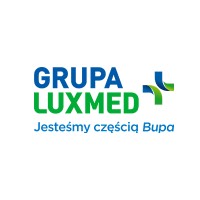
LUX MED
LUX MED - leader and trustworthy expert We care for the health of the patients professionally and with engagement, we have been developing our business for over 20 years. Today we are the leader and expert on the private healthcare market. We take under our care both individual patients and corporate ones and their families. Out-patient activity is realized under two leading and complementary brands - LUX MED and Medycyna Rodzinna. We have an impressive network, which is created by over 1600 facilities with modern equipment throughout Poland, where we diagnose, examine and treat over 1 200 000 patients. We already have our own 114 medical centers, 1500 cooperating facilities and one of the biggest in Poland private diagnostic database. In 2010 we opened a hospital in Warsaw. We have over 8500 employees, including 4100 medical doctors of various specialties. Trust, satisfaction and health of the patients are values that we put great importance to. Meeting your expectations we are still perfecting our standards and implementing new solutions to provide constantly high quality of services, easy access to the doctors, consultations and examinations.






